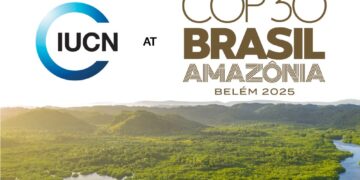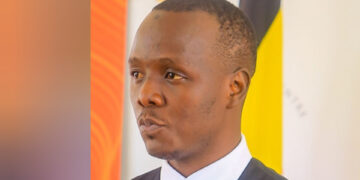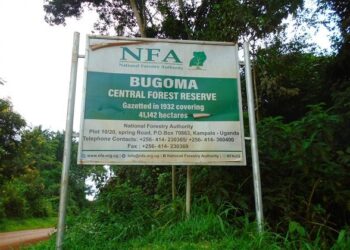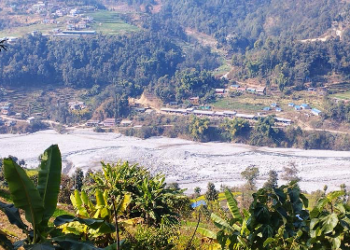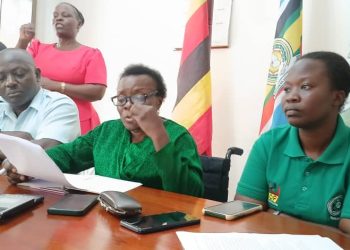OPINION
As global leaders prepare to gather in Belém, Brazil, from 10th to 21st November 2025 for the United Nations Climate Change Conference (COP30), where nations are expected to submit their next round of enhanced NDCs, often referred to as “NDC 3.0.” to guide global climate action up to 2035, attention is turning to how countries are updating and implementing their Nationally Determined Contributions (NDCs) which is the backbone of the Paris Agreement. It is noted that every five years, countries are required to submit updated and more ambitious NDCs, reflecting progress and lessons learned. These updates are critical because they form the foundation of global efforts to limit global temperature rise to well below 2°C, preferably to 1.5°C compared to pre-industrial levels
For instance, for the countries like Uganda, COP30 comes at a time of both opportunity and tension where the country is determined to achieve its economic growth through oil and gas development, even as it pledges to cut emissions and build resilience to climate change. It is noted that Uganda was among the first African countries to ratify the Paris Agreement in 2016 and later submitted its updated NDC in 2022. The document outlines Uganda’s commitment to reduce greenhouse gas emissions by 24.7% by 2030, compared to business as usual levels. This target, however, depends heavily on international finance, technology transfer and capacity building support. The country’s NDC emphasizes not only emission reduction but also adaptation, recognizing Uganda’s high vulnerability to climate impacts such as droughts, floods and changing rainfall patterns that affect food security and livelihoods.
Additionally, Uganda’s NDC aligns with its Vision 2040 and National Development Plan (NDP) III, both of which aim to transform the country into a modern and climate-resilient economy. The National Climate Change Act (2021) further provides a legal framework for implementing climate actions and ensuring government accountability. However, the ongoing expansion of oil and gas activities in the Albertine Graben has raised important questions about Uganda’s ability to meet its climate goals.
It is noted that Uganda’s oil sector has been hailed as a potential engine of economic transformation, with 6.5 billion barrels of discovered oil reserves, the government anticipates that petroleum development particularly the Tilenga, Kingfisher and the East African Crude Oil Pipeline (EACOP) projects will generate revenue to fund infrastructure, energy access and poverty reduction yet, these same projects are controversial because they directly challenge Uganda’s climate commitments under its NDC. Oil extraction is highly carbon intensive and risk increasing Uganda’s emissions at a time when the world is calling for a shift away from fossil fuels. These oil activities threaten biodiversity in sensitive ecosystems like Murchison Falls National Park and the Albertine Rift as well as the livelihoods of local communities.
Moreover, according to Down to Earth report, Earth Insights on September 2025, made a press analysis noting that, the EACOP project stretching 1,443 kilometers from Hoima in Uganda to Tanga in Tanzania, is projected to generate over 34 million tons of carbon emissions annually at peak production, undermining global climate commitments. These emissions could undermine Uganda’s progress towards its NDC targets, making it harder to justify the country’s commitment to a low-carbon development pathway.
Absurdly, EACOP does not only represent a grave threat to Uganda’s protected areas and biodiversity but it is also an assault on climate stability and our collective future. This project has come at a time when the country should be investing in renewable energy and climate resilience. It is regrettable that billions are being poured in a project that will displace thousands of families, contaminating water and lock in decades of carbon pollution.
Therefore, as Uganda joins other countries in Belém for COP30, it must demonstrate leadership by presenting a clear time bound national roadmap for transitioning from fossil fuels to renewable energy which includes setting measurable targets for scaling up solar, wind and hydropower generation and gradually phasing down reliance on oil and gas that may increase harmful emissions and degrades our environment. This will help the country strengthen the credibility of its 24.7% emission reduction pledge under the NDC and align itself with global efforts to limit warming to 1.5°C. This would also open doors to international climate finance and technology support which are critical for implementing green energy projects and meeting Uganda’s development needs sustainably.
Lastly, Uganda should use the COP30 platform to advocate for increased, predictable and accessible climate finance to help developing countries implement their NDCs without sacrificing economic progress. The country can call for a dedicated fund to support just energy transitions, ensuring that countries like Uganda diversify their economies and invest in clean energy instead of locking into fossil fuel dependence.
By Olive Atuhaire, Environmentalist
E-mail: atuhaireolivia72.ao@gmail.com
